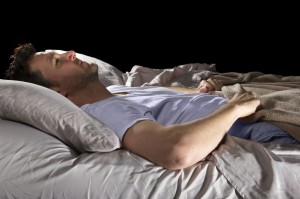 Just last week, I reminded you of the dire importance of getting enough sleep. Today, I want to explain why the quality of the sleep you get is just as important as the quantity.
Just last week, I reminded you of the dire importance of getting enough sleep. Today, I want to explain why the quality of the sleep you get is just as important as the quantity.
Australian researchers recently analyzed sleep data from nearly 400 adults in the Brusselton Health Study. In this group, 20 percent of subjects suffered from mild sleep apnea (and nearly 5 percent had a severe form of this condition).
Just as a refresher, sleep apnea means that you stop breathing repeatedly while you sleep—usually due to blocked airways. And if it sounds scary, that’s because it is.
This new research found that people with moderate to severe cases of sleep apnea were four times more likely to have a stroke. And more than twice as likely to develop cancer (and three times more likely to die from the disease).
Unfortunately, this is hardly the first study of its kind to deliver results like this.
The fact is, sleep apnea is downright deadly.
So how do you know if you have it? There are a few tell-tale signs to look out for. One of them is loud snoring. (And I don’t mean the occasional night of snoring—I’m talking about the kind of chronic log-sawing that gets you kicked out of bed.) Another red flag is excessive daytime sleepiness, even after a full night’s sleep.
If you suspect you have sleep apnea, see your doctor. Because there are treatments available—like breathing masks that deliver continuous positive airway pressure (CPAP) while you sleep.
But if you hate the idea of wearing a mask to sleep, here’s something else to consider. Obesity is one of the main risk factors for sleep apnea. Which means the cure—as with so many other deadly conditions—could ultimately be as simple as losing weight. And you already have all the tools you need to get started on that journey.
Source:
“Sleep apnea and 20-year follow-up for all-cause mortality, stroke, and cancer incidence and mortality in the busselton health study cohort.” J Clin Sleep Med. 2014 Apr 15;10(4):355-62.

